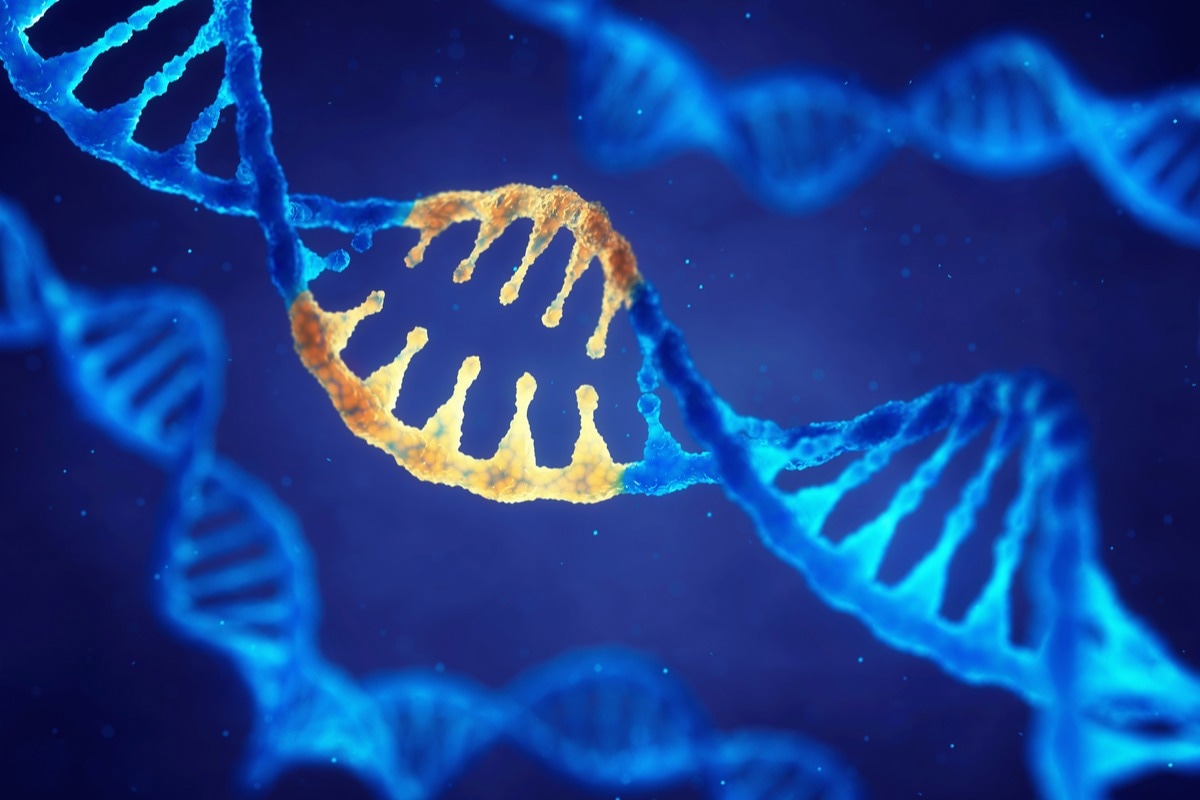In a recent study posted to the Research Square* preprint server, researchers assessed the association between severe acute respiratory syndrome coronavirus 2 (SARS-CoV-2) variants and the vitamin D receptor (VDR) gene.
 Study: A strong association between the VDR gene markers and SARS-CoV-2 variants. Image Credit: nobeastsofierce/Shutterstock
Study: A strong association between the VDR gene markers and SARS-CoV-2 variants. Image Credit: nobeastsofierce/Shutterstock

 *Important notice: Research Square publishes preliminary scientific reports that are not peer-reviewed and, therefore, should not be regarded as conclusive, guide clinical practice/health-related behavior, or treated as established information.
*Important notice: Research Square publishes preliminary scientific reports that are not peer-reviewed and, therefore, should not be regarded as conclusive, guide clinical practice/health-related behavior, or treated as established information.
Background
Previous studies have highlighted the correlation between coronavirus disease 2019 (COVID-19) and vitamin D deficiency due to the observed low vitamin D levels in SARS-CoV-2 infected patients. To date, there is a lack of knowledge related to the association of SARS-CoV-2 variants with VDR gene markers.
About the study
In the present study, researchers identified the putative effect of polymorphisms of the VDR gene on SARS-CoV-2 infection across different viral variants.
The team obtained nasopharyngeal swabs from 600 individuals who were admitted for a routine SARS-CoV-2 quantitative reverse transcription-polymerase chain reaction (RT-qPCR) test. The samples that tested RT-qPCR negative for COVID-19 were considered control samples, while the positive samples were found to be infected with either SARS-CoV-2 Alpha, Delta, or Omicron variants. The team used mutations such as del69/70, N501Y, K417N, T478K, Y144del, and P681R to identify the variant present in the positive samples via whole-genome sequencing.
The team also extracted human genomic deoxyribonucleic acid (DNA) from individuals who volunteered from the COVID-19 positive and COVID-19 negative cohorts. Two VDR gene polymorphisms, namely FokI-rs10735810 and TaqI-rs731236 were genotyped by PCR-restriction fragment length polymorphism (PCR-RFLP). These genotypes were detected as per the presence or absence of two restriction sites tested, followed by the designation of alleles.
Furthermore, the team explored the genotypic distribution as well as the allelic frequencies between VDR genes Fokl and Taql among COVID-19 patients. The same parameters were then compared to those estimated in the control subjects.
Results
The study cohort comprised 300 SARS-CoV-2-positive individuals who were infected with the Alpha, Delta, and Omicron BA.1 variant and 300 control samples. The average ages of the COVID-19 patients and the control persons were 46.12 ± 12.36 and 45.25 ± 12.71 years, respectively. Furthermore, the team noted that the patient group included 51.7% male and 48.3% female patients, while the control cohort had 57% male and 43% female individuals.
The study results showed substantial variation in the genotypic frequencies corresponding to the Taql and Fokl variants among the COVID-19 patient group and the control cohort. The team found that the risk alleles namely the Taql C and Fokl T alleles were statistically significant among the SARS-CoV-2-positive patients.
The team also analyzed the genotypic distributions of Taql and Fokl polymorphisms among the case and control groups. The genotypes detected were categorized as: (1) Group1: FokI TT or (wild-type) + TaqI TT (wild-type) and (2) Group2: FokI TC+ CC (heterozygote + homozygote) + TaqI TC+ CC (heterozygote + homozygote). Among individuals displaying the group 1 genotype, almost 53% of the individuals belonged to the control cohort, while 17.5% were from the infected cohort. Moreover, the group 2 genotype was detected in 82.5% of the COVID-19 patients and 47.1% of the control subjects. This suggested that patients having the Taql and Fokl polymorphisms were more susceptible to COVID-19 infection.
Mutation analysis revealed that FokI C> T polymorphism was present in a minimum of one mutant allele among 69% of the Delta-infected individuals, while 54% of the Alpha-infected patients had a minimum of one mutant allele. Moreover, 77% of the Omicron BA.1 patients had a minimum of one mutant allele corresponding to the same mutation.
Additionally, the team observed that the TaqI T > C polymorphism was present in almost 67% of the Delta-infected patients having a minimum of one altered allele. On the other hand, 60% of the Alpha-infected patients had a minimum of one mutant allele. Furthermore, 72% of the Omicron-infected patients displayed a minimum of one mutant allele.
Conclusion
Overall, the study findings showed that patients displaying Taql and Fokl polymorphisms among the VDR genes were more susceptible to SARS-CoV-2 infection. The researchers recommend the consumption of vitamin D supplements in individuals diagnosed with deficiency or insufficiency of vitamin D before or after the COVID-19 pandemic.

 *Important notice: Research Square publishes preliminary scientific reports that are not peer-reviewed and, therefore, should not be regarded as conclusive, guide clinical practice/health-related behavior, or treated as established information.
*Important notice: Research Square publishes preliminary scientific reports that are not peer-reviewed and, therefore, should not be regarded as conclusive, guide clinical practice/health-related behavior, or treated as established information.